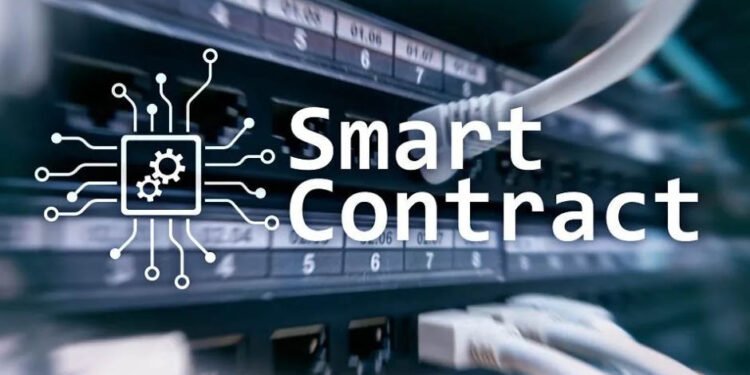Decentralized Autonomous Organizations (DACs) signify a groundbreaking shift in organizational structures, leveraging blockchain technology and smart contracts to operate autonomously, free from centralized control. DACs embody key principles, including transparency, trustlessness, and self-governance. The roots of DACs trace back to the evolution of blockchain technology, organically emerging to challenge traditional organizational hierarchies. This article explores the historical trajectory of DAC development within the broader blockchain ecosystem. Smart contracts, encoded on the blockchain, play a crucial role in DAC functionality, automating various processes and acting as the linchpin for trustless and efficient execution of predefined rules within DAC operations. In addition, you can find an investment education company to start your learning journey by visiting this Homepage.
Understanding Smart Contracts
Definition and Characteristics
Smart contracts are self-executing contracts with the terms of the agreement directly written into code. This subsection will elucidate the core features of smart contracts, emphasizing their tamper-resistant nature, automation capabilities, and the role they play in reducing the need for intermediaries.
How Smart Contracts Differ from Traditional Contracts
Drawing a clear distinction between smart contracts and their traditional counterparts, this part will highlight the unique attributes of smart contracts. Eliminating reliance on intermediaries, automating enforcement, and ensuring transparency are key differentiators explored in this section.
Benefits and Advantages of Smart Contracts in DACs
Delving into the advantages, this subsection will outline how smart contracts enhance the efficiency of DAC operations. From reducing costs to minimizing the risk of fraud, smart contracts offer a myriad of benefits, fostering a more streamlined and secure organizational framework.
Technical Foundations of Smart Contracts
Blockchain Technology Overview
To comprehend the role of smart contracts, a foundational understanding of blockchain technology is crucial. This section will provide an overview of blockchain, exploring its decentralized nature, immutability, and the distributed ledger that underpins smart contract functionality.
Ethereum and its Role in Enabling Smart Contracts
Ethereum, as a leading blockchain platform, is instrumental in enabling smart contracts. This part will delve into the specifics of Ethereum’s architecture and its significance in providing a conducive environment for the development and execution of smart contracts.
Coding Languages for Smart Contracts (e.g., Solidity)
An exploration of coding languages, with a focus on Solidity, will shed light on the technical aspects of smart contract development. Understanding the coding languages involved is essential for grasping the intricacies of smart contract implementation.
The Dynamics of DAC Operations
Decentralization Principles in DACs
Decentralization is a cornerstone principle of DACs. This section will elucidate how decentralization fosters resilience, mitigates censorship, and empowers individuals within the DAC ecosystem.
Autonomous Decision-Making Processes
Examining the core of DAC functionality, this subsection will explore how autonomous decision-making processes are facilitated by smart contracts. From voting mechanisms to consensus algorithms, the section will provide insights into the democratic underpinnings of DAC operations.
Governance Structures and Smart Contracts
Governance within DACs is a complex interplay of smart contracts and community-driven decision-making. This part will delve into the intricacies of governance structures, highlighting the role of smart contracts in ensuring fairness and transparency.
Real-world Applications of Smart Contracts in DACs
Tokenization and Fundraising
Tokenization is a key application of smart contracts within DACs. This section will explore how smart contracts facilitate token creation, distribution, and fundraising, revolutionizing traditional models of financing.
Decentralized Decision-Making
Real-world applications extend to decentralized decision-making, where smart contracts enable voting mechanisms and consensus-building processes. This part will showcase instances where DACs leverage smart contracts for inclusive and transparent decision-making.
Supply Chain Management in DACs
The utilization of smart contracts in supply chain management within DACs is explored here. From traceability to automated payments, smart contracts play a vital role in enhancing the efficiency and transparency of supply chain operations.
Challenges and Solutions
Security Concerns in Smart Contracts
Despite their advantages, smart contracts are not immune to security vulnerabilities. This section will delve into potential threats, emphasizing the importance of security audits and the ongoing efforts to enhance the resilience of smart contracts.
Legal Implications and Regulatory Challenges
Smart contracts raise novel legal and regulatory questions. This subsection will explore the evolving legal landscape surrounding smart contracts, addressing challenges and potential solutions to ensure compliance and legitimacy.
Mitigation Strategies and Best Practices
To counter challenges, DACs implement mitigation strategies and best practices. This part will provide insights into proactive measures, industry standards, and best practices aimed at fortifying the robustness of smart contracts and DAC operations.
Future Outlook and Emerging Trends
Evolving Technologies in Smart Contracts
This section will forecast the future trajectory of smart contracts, exploring emerging technologies and their potential impact on enhancing the capabilities and functionalities of smart contracts within DACs.
Interoperability and Integration with Emerging Technologies
Interoperability is a key consideration for the future of smart contracts. This part will examine efforts to enhance interoperability and explore how smart contracts might integrate with emerging technologies, ensuring a seamless and interconnected ecosystem.
Potential Impact on Traditional Business Models
The final subsection will delve into the potential disruption and transformative impact of smart contracts on traditional business models. Exploring potential shifts in organizational structures, this part will consider how DACs and smart contracts may redefine conventional approaches to business.
Conclusion
In conclusion, this article delves into the pivotal role of smart contracts within Decentralized Autonomous Organizations (DACs), highlighting their transformative potential and profound impact on reshaping organizational paradigms. The recap emphasizes how smart contracts, encoded on blockchain technology, enable DACs to operate autonomously, promoting transparency and trustless interactions. The summary section provides a concise overview of key insights, offering readers a quick reference to the critical elements explored, while avoiding the use of traditional business terminology. The article concludes by envisioning the future landscape of DACs and smart contracts, speculating on the continued evolution of decentralized autonomous organizations and their symbiotic relationship with the technology that underpins smart contracts.












